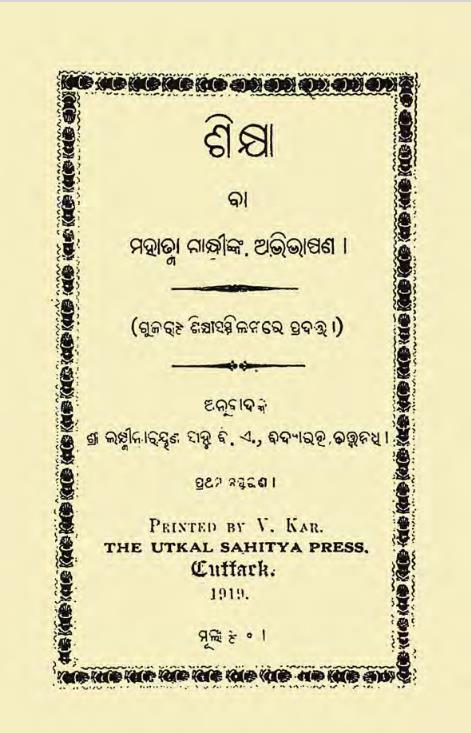Mahatma Gandhi, a towering figure in the struggle for India’s independence, was not only a political leader but also a profound thinker and educationist. His work encompasses a wide range of topics, and one such significant contribution is Siksha, which translates to Education. Initially penned in Gujarati and later translated by Lakshminarayan Sahu in 1919, this work reflects Gandhi’s philosophy on education, morals, and societal progress.
In Siksha, Gandhi emphasizes that education is not merely the acquisition of knowledge but a holistic development of the individual. He argues that education should aim at cultivating character, fostering moral values, and nurturing the soul. For Gandhi, true education involves both intellectual growth and the ability to act ethically in the world. This dual emphasis on morality and intellect sets Siksha apart from conventional educational discourses of the time.
Gandhi perceives education as a crucial tool for personal and societal transformation. He believed that a well-educated person is not merely knowledgeable but also possesses the ability to contribute positively to society. This concept of education interlinks with his vision for a self-reliant India—a country where individuals take responsibility for their own development as well as that of their communities. Gandhi’s advocacy for education resonates with his philosophy of Sarvodaya, which calls for the upliftment of all, emphasizing that true progress cannot occur without the improvement of the most marginalized.
In Siksha, Gandhi also critiques the British educational system, which he viewed as a mechanism for perpetuating colonial domination. He believed that the Western model of education largely ignored Indian culture and values, promoting instead an alien worldview. This led to a disconnect between students and their own heritage, resulting in a loss of identity. Gandhi’s vision called for an education system that is rooted in Indian culture and traditions, one that respects local languages and promotes indigenous knowledge.
Furthermore, Gandhi discusses the importance of practical education, which he believed should be integrated with vocational training. He envisioned a system where education is closely linked to the community’s needs, allowing individuals to learn skills that would enable them to contribute to their surroundings meaningfully. By promoting productive work as part of the educational process, Gandhi aimed to instill a sense of dignity in labor and emphasize the value of craftsmanship.
The translation of Siksha by Lakshminarayan Sahu plays a crucial role in making Gandhi’s insights accessible to a broader audience. The translation bridges linguistic and cultural gaps, allowing readers from diverse backgrounds to engage with Gandhi’s educational philosophy. It is essential to recognize that translation is not merely a linguistic exercise; it involves the transference of ideas, values, and cultural contexts.
Books Info
| Books name | Siksha / ଶିକ୍ଷା |
| Author | Mohandas Karamchand Gandhi; Lakshminarayan Sahu, Tr. |
| No Of pages | 69 |
| Publisher | NA |
| Publication | 1919 |
| Printed At | The Utkal Sahitya Press |
| Distributor | NA |

